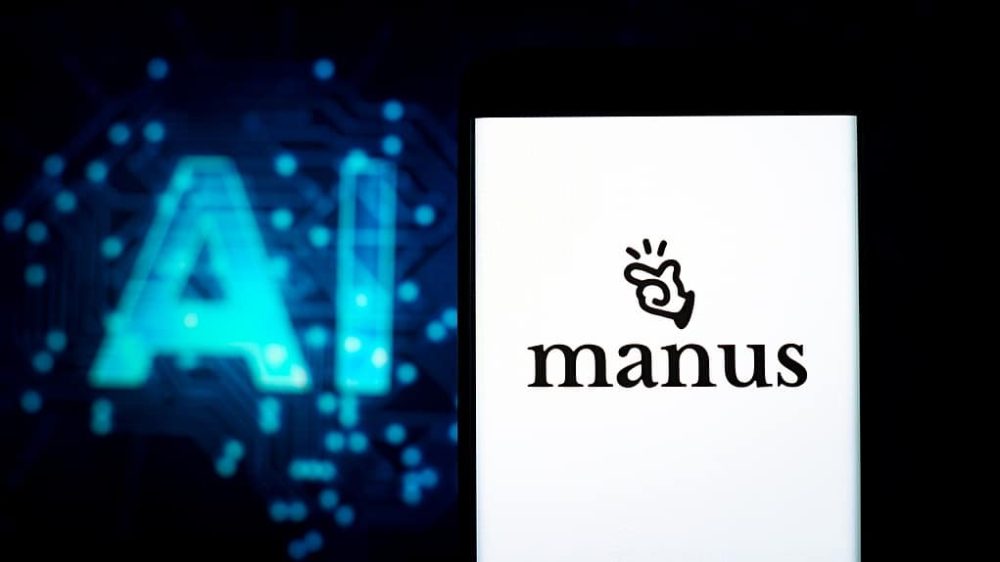Beijing has signaled its support for Chinese artificial intelligence startup Manus after the company’s AI assistant received regulatory approval and was featured on state media for the first time on Tuesday. This development highlights China’s strategy of promoting domestic AI companies that have gained international recognition.
Manus recently made waves in the global tech community when it unveiled what it described as the world’s first general AI agent. Unlike conventional AI chatbots such as ChatGPT or those developed by Chinese competitor DeepSeek, Manus claims its technology can independently make decisions and complete tasks with minimal human guidance.
This announcement generated significant buzz on the social media platform X several weeks ago. The Chinese government appears to be following a similar playbook with Manus as it did with DeepSeek, another domestic AI success story.
DeepSeek’s Low-Cost AI Disrupts Silicon Valley, Sparks Chinese Investor Interest
DeepSeek surprised Silicon Valley by developing AI models comparable to American competitors but at substantially lower costs, catching the attention of Chinese investors hunting for the next breakthrough domestic tech company.
State broadcaster CCTV devoted airtime to Manus on Tuesday, releasing a video explaining the differences between Manus’ AI agent and DeepSeek’s AI chatbot.
On the same day, Beijing’s municipal government announced that Monica, a Chinese version of an earlier Manus product, had successfully completed the mandatory registration process for generative AI applications in China.

This regulatory approval represents a significant milestone for Manus, as Chinese authorities require all generative AI applications operating within the country to comply with strict guidelines. These rules are designed partly to ensure that AI products don’t generate content deemed sensitive or harmful by Chinese authorities.
Further strengthening its position in the domestic market, Manus announced a strategic partnership last week with the team behind tech giant Alibaba’s Qwen AI models. This collaboration could accelerate the rollout of Manus’ AI agent within China.
Manus AI: China’s Next Leap in Standalone AI?
Currently, access to Manus’ AI agent remains limited, available only to users with special invite codes. The firm claims that approximately 2 million individuals are put on the waiting list to experience the technology.
Manus’ entry comes on the heels of a flurry of fierce competition in China’s AI industry, with many startups competing for market share and investor interest. Industry experts argue that government backing could be the key to Manus’ success as it looks to expand its operations and improve its technology.
China’s support for domestic AI companies like Manus and DeepSeek is just one part of its broader technological aspirations that are part of its various five-year plans and national blueprints.
Such blueprints are for China to emerge as a front-runner in the world’s new technologies, and artificial intelligence is one specific area highlighted because of its immense potential applications in various industries.
The Chinese regulatory framework for AI is far more differentiated from Western economies, with regulators having a more active role in shaping technology development. This involves censorship of content and adherence to national objectives, which must be traversed if firms are to receive approval for public release.
Observers explain that China’s strategy in developing AI finds an equilibrium between control and innovation by permitting potential start-ups to thrive while requiring their products to comply with domestic regulations. The model has seen the rapid evolution of certain aspects of AI while maintaining state control over the application and utilization of the technology.
Global technology gurus are tracking Manus closely, as its purported capabilities could mark a leap of giant proportions in standalone AI technology. If the technology of the company is as capable as it has claimed to be, it could well disrupt paradigms that currently exist in human interaction with AI.
As competition between the United States and China for technological supremacy intensifies, firms like Manus are at the center of national pride, and strategic importance, with success not only regarded as business success but also as approval of China’s technological excellence in the world.






